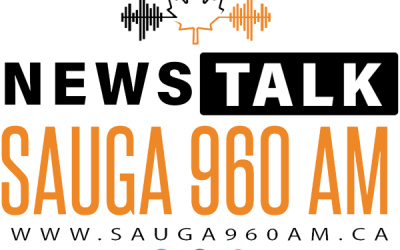Have you seen that great new commercial from the Dairy Farmers of Canada? It
shows a herd of cows outside a barn at dawn and the premise is “What if, one
morning, the dairy farmers just didn’t get up?”
The consequences are disastrous. A little girl contemplating dry Cheerios. A
mom finding only blueberries, no yogurt, in her yogurt cup. A short-order
cook making a cheese sandwich with no cheese. A guy in a coffee shop
exasperatedly throwing away his little cream container because it’s empty.
And then the kicker: The alarm goes off and a sympathetic grey-haired guy,
your friendly neighbourhood dairy farmer, does get out of bed. Roll closing
credits: “Canadian Dairy Farmers: Here for good.”
It’s a brilliant commercial (which you can see it here
if you haven’t had the pleasure already).
Only trouble is it’s wrong.
“What if, one morning, the dairy farmers just didn’t get up?” The correct
answer is that they’d be better off for the extra sleep and the rest of us
would be better off because we could then import dairy products at world
prices and not have to pay the $4.2 billion a year in higher prices that the
OECD estimates our system of “supply management” costs us. (In fairness,
that number also includes the cost of supply management in poultry and
eggs.)
“Supply management” should actually be named “supply strangulation.” In the
1970s, after a series of interprovincial spats – how Canadian! – over
“cross-border” (within Canada!) movements of chickens and eggs, our
governments set up marketing boards to regulate supplies. It became illegal
to produce certain agricultural products without “quota,” which now in dairy
costs more than $28,000 per cow, according to Winnipeg’s Frontier Centre for
Public Policy. The quota has value, of course, only because the restriction
of supply raises Canadian prices above what they would be in a free market.
And the jacking up of Canadian prices is only possible because we block
foreign supplies at the border.
How inflated are Canadian prices? Extremely inflated. Our tariff on milk is
241 per cent. On cream, 295.5 per cent. On butter, 298.5 per cent. You want
some nice imported Parmesan cheese? That will cost you a tax of 245.5 per
cent at the border. Prefer to get your protein from chicken rather than
cheese? Prepare to pay 238 per cent extra for foreign chicken.
Some ice cream to go with all that? Pay at the border: 267.5 per cent. Or
maybe a soufflé? Unfortunately, foreign eggs will cost you between 79 cents
and $2.91 a dozen in duty, depending on exactly what kind you like.
Two conclusions are possible about a protection racket so successful it
imposes border taxes averaging 250 per cent.
The first is that Canadian producers have world-record profits. In fact, as
the marketing boards insist every year when they announce price hikes,
although Canadian farmers are doing well enough to be “here for good”
they’re not cleaning up. Their costs are also high.
Which leads to the second possible conclusion, namely, that if Canadian
costs really are two and a half times higher than foreign producers’ costs,
maybe these are industries we really don’t want to be in for the long haul.
If, instead, we made a deal with farmers whereby we paid them some fraction
of the sum they currently cost us in inflated prices and they agreed to stay
in bed, that would clearly benefit them, and we could import our eggs,
chicken, cheese and milk at world prices, which would benefit us. It’s
win-win. Farmers get extra Zs; the rest of us get extra $s.
In the view of the farm lobby, that’s a nightmare scenario: no more dairy
farms in Canada. In fact, in Australia and New Zealand, two countries that
have done major market-freeing agricultural reforms, many farmers adapted
and stayed in business even after losing the legislated power to rip off
customers.
William Watson teaches economics at McGill University.



